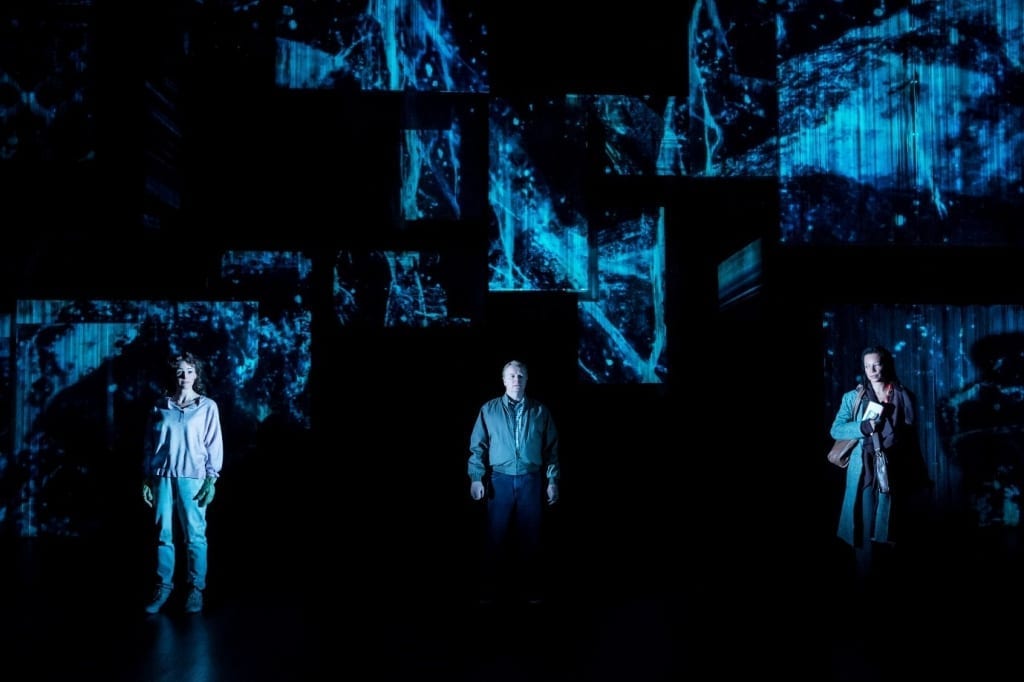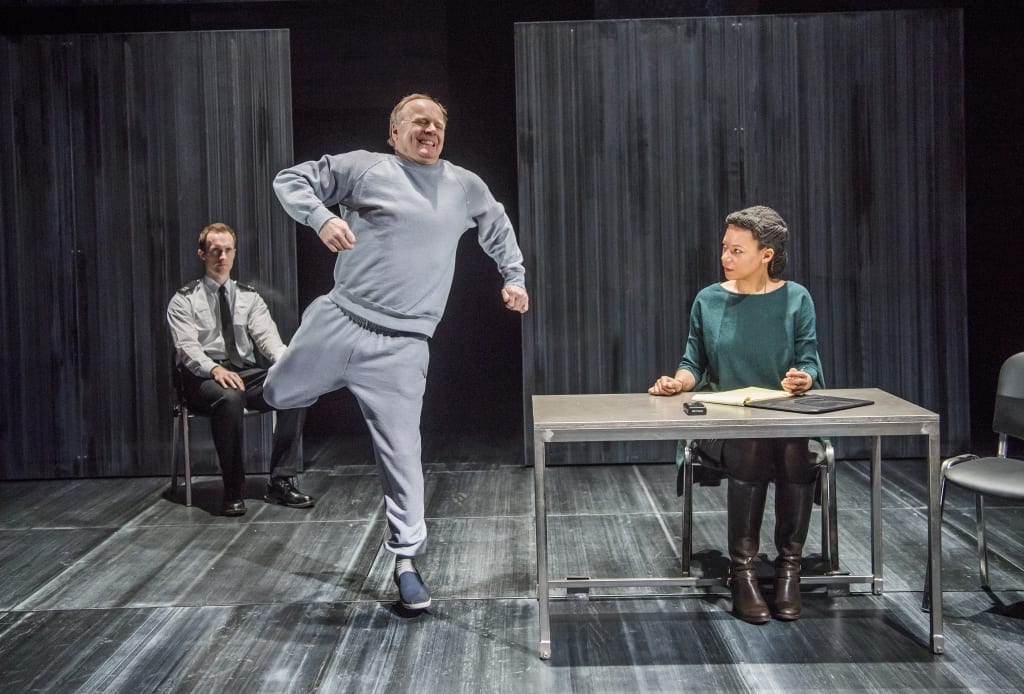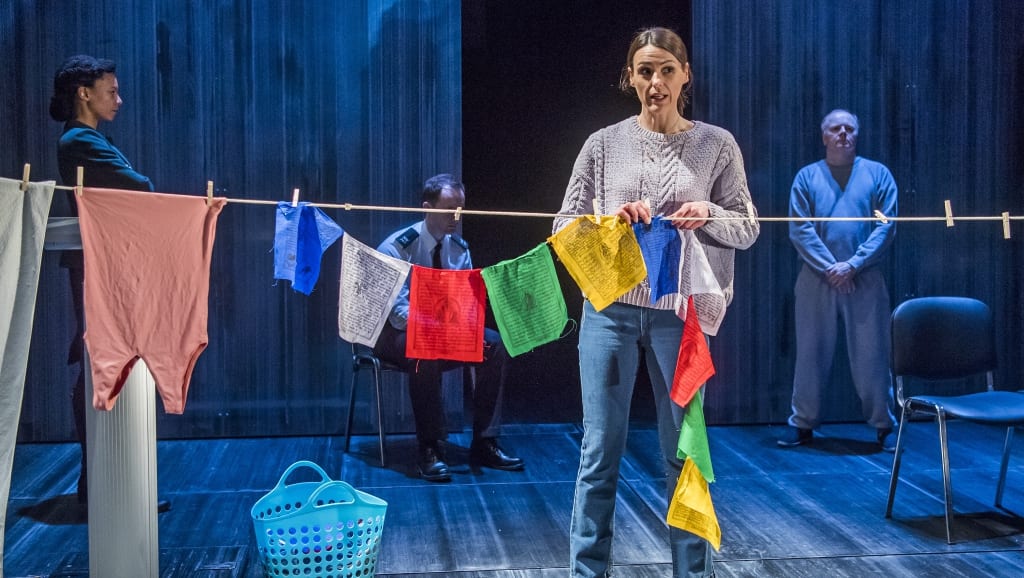The revival of the 1998 Bryony Lavery’s Frozen, nominated for 4 Tony awards in 2004, leaves me unsatisfied. The play pieces together events following the disappearance of Nancy Shirley’s daughter. We see the distraught mother, frozen in pain and hope, the disturbing paedophile with a mind like ice and the psychologist who studies him, snow settling in her head. Eventually all the characters try to thaw their troubled psyches, but a coldness remains in this play’s dark heart. However, there is a disjointedness to the script that fosters a disconnect between the audience and the characters. The ideas behind the play, evil vs. illness and coming to terms with a missing child, don’t appear as original as they might have done in 1998.

Projected on to a dozen panels hovering above the stage, frosty images of sinewy synapses and the missing girl, Rhona. The lighting, visual effects and sound emphasise the underlying coldness, though it doesn’t compensate for the laboured content. The scenes jump around too much, from date to date, setting to setting. This technique comes together in a series like The Keepers (Netflix), which deals with similar themes, however it disrupts the pace of this piece of theatre. Samuel Johnson noted in his 1765 Preface to Shakespeare that only the best playwrights like the Bard himself, can shirk the Aristotelian unities of space, time and action without compromising on intensity. Bryony Lavery has yet to reach such heights.
The relentless passage of time hampers Suranne Jones’ performance as Nancy. Her emotional development is unclear, rendering the character shallow. While I was captivated by Nina Sosanya’s performance in Platanov (Chekov) it sometimes unclear how her character, the psychiatrist Agnetha, fits into the drama. While some of the most interesting parts of the play are Agnetha’s scientific inquiries into the mind of a killer, they are delivered all to obviously. There is something awfully GCSE Drama about the whole affair. At moments it feels like a Theatre in Education piece. It is an essential learning objective to understand that serious criminals have mental health problems, which prevent them from making ‘moral’ decisions. This grand assertion is not that profound in a society post Danish TV thriller The Killing, or investigative-journalism-cum-pop-psychology like The Psychopath Test (Jon Ronson).

The play is somewhat saved by Lavery’s Ralph Wantage, the paedophile. He gets under your skin and cements the frozen centre of the play, the source of all it’s darkness. While she gives him a backstory, Jason Watkins doesn’t shy away from rendering him a troubling villain. His performance embodies Agnetha’s description of Ralph, ‘manipulative, intense, kind of mesmerising’. There are eerie phrases he cannot help repeating like ‘oh yes’ and ‘obviously,’ which echo in your mind after you leave the theatre. Worst of all is how he turns ‘hello’ into one of the most sinister words ever uttered, as he tries to get a little girl’s attention. Despite Watkins, I struggle to understand this play’s revival rather than championing more innovative work. Its ideas are not new, the script is not outstanding, and it lacks an overall intensity.

